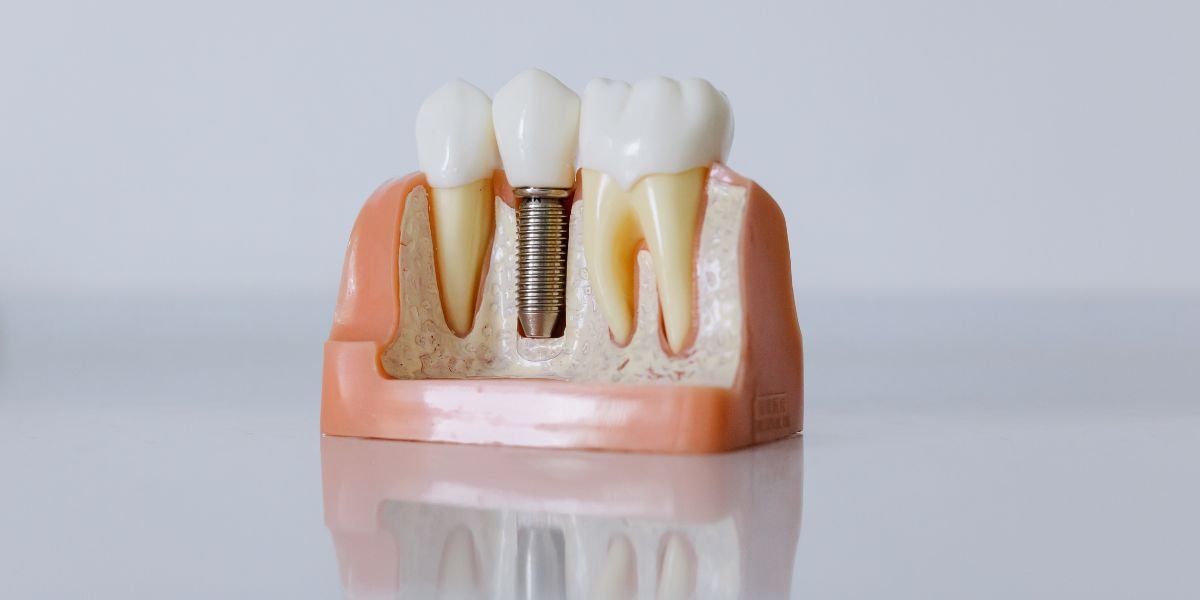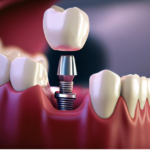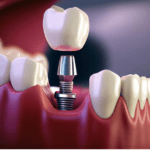When it comes to replacing missing teeth, the two most popular options are Dental Implants. Both have their unique benefits and considerations, making the choice between them a personal one that should be guided by professional advice. This article aims to provide a detailed comparison to help you make an informed decision. A dental bridge is a prosthetic device used to fill the gap created by one or more missing teeth. It typically consists of two or more crowns for the teeth on either side of the gap and a false tooth or teeth in between.
Benefits of Dental Bridges
Dental bridges offer several advantages. Firstly, they restore the function and appearance of natural teeth, allowing individuals to chew and speak properly. They also prevent remaining teeth from shifting out of position, which can lead to further dental issues. Additionally, bridges are relatively quick to install, often requiring only two dental visits.
Drawbacks of Dental Bridges
However, there are some downsides to consider. Dental bridges can place extra stress on the adjacent teeth, which might require alteration even if they are healthy. Over time, this can lead to weakening of these teeth. Furthermore, bridges do not address bone loss in the jaw, which can occur after a tooth is lost. Regular maintenance and potential replacements can also add to the overall cost.
Understanding Dental Implants
Dental implants involve placing a titanium post into the jawbone, which acts as a root for a replacement tooth. This process requires minor surgery but offers a more permanent solution compared to bridges.
Benefits of Dental Implants
Implants provide a long-term solution with several benefits. They mimic natural teeth in both function and appearance, offering superior aesthetics. One of the significant advantages of implants is that they stimulate bone growth and prevent bone loss, maintaining the structure of the jaw. Additionally, implants do not affect adjacent teeth, preserving the integrity of surrounding dental structures.
Drawbacks of Dental Implants
Despite their benefits, dental implants come with their own set of challenges. The initial cost of implants is higher than that of bridges, and the process involves a more extended treatment period, often several months. Surgery poses risks such as infection or implant failure. Moreover, not all patients are suitable candidates for implants; adequate bone density is required to support the implant, which may necessitate additional procedures like bone grafting.
Comparison: Durability and Longevity
When considering durability and longevity, dental implants have a clear advantage. Implants are designed to last a lifetime with proper care, whereas bridges typically need to be replaced every 10-15 years. The durability of implants can make them a more cost-effective option in the long run despite the higher initial investment.
Comparison: Cost Considerations
The cost is a significant factor for many patients when choosing between a bridge and an implant. Dental bridges tend to be less expensive upfront. However, considering the long-term perspective, implants may prove to be more economical due to their longevity and lower maintenance needs. The higher upfront cost of implants can be offset by their extended lifespan, making them a potentially better investment.
Comparison: Procedure and Recovery
The procedures for bridges and implants differ significantly. Getting a dental bridge usually requires less time and fewer visits to the dentist. In contrast, dental implants require surgery and a longer healing period. The implant process involves osseointegration, where the jawbone grows around the implant, which can take several months. This extended process can be a drawback for those seeking a quicker solution.
Aesthetic Considerations
Both bridges and implants can provide a natural-looking replacement for missing teeth, but implants often offer superior aesthetic results. Implants are designed to look and feel like natural teeth, and because they integrate into the jawbone, they help maintain the natural shape of the face and jawline. Bridges, while effective, can sometimes be noticeable, especially if the adjacent teeth begin to show signs of wear or decay.
Oral Health Impact
Dental implants are generally better for overall oral health. They do not require alteration of adjacent teeth, preserving natural tooth structure. Implants also help stimulate the jawbone, preventing bone loss and maintaining dental health. In contrast, bridges require the reshaping of nearby teeth, which can weaken them and increase the risk of future dental problems.
Suitability and Candidacy
Not everyone is a suitable candidate for dental implants. Candidates must have adequate bone density and be in good overall health to undergo surgery. Certain conditions like diabetes, smoking, or bone disorders can affect the success of implants. Conversely, bridges are more universally applicable and can be an option for patients who are not eligible for implants due to medical reasons or bone density issues.
Maintenance and Care
Both bridges and implants require good oral hygiene practices. Dental implants need regular brushing, flossing, and dental check-ups to ensure they remain in good condition. Similarly, dental bridges require meticulous cleaning to prevent decay and gum disease around the supporting teeth. However, implants generally offer easier maintenance since they do not involve additional care for adjacent teeth.
Making the Decision: Consultation with an Implantologist UK
Choosing between a dental bridge and an implant is a significant decision that should be made with the guidance of a dental professional. An experienced Implantologist in the UK can provide a thorough assessment of your oral health and discuss the best options tailored to your needs. Factors such as the number of missing teeth, the condition of adjacent teeth, bone density, and overall health will influence the recommendation.
Conclusion
Both dental bridges and implants offer effective solutions for replacing missing teeth, each with its own set of benefits and considerations. Bridges may be more suitable for those seeking a quicker, less invasive, and initially more affordable solution. In contrast, implants offer a more durable, natural-looking, and bone-preserving option, albeit with a higher upfront cost and longer treatment time. Ultimately, the best choice depends on individual circumstances and should be made in consultation with a dental professional.
Choose Saint Visage Dental Group – The Leading Dental Group in UK
When it comes to dental implants, trust the experts at Saint Visage Dental Group. As the leading dental group in the UK, our team of skilled implantologists offers unparalleled expertise and personalized care to ensure the best outcomes for our patients. Whether you are considering dental implants or exploring other dental solutions, our dedicated professionals are here to help you achieve optimal oral health and a beautiful smile.
Contact Saint Visage Dental Group today to schedule a consultation and learn more about how we can help you restore your smile with the most advanced dental implant techniques available. Our commitment to excellence and patient care sets us apart as the premier choice for dental implantology in Europe.




